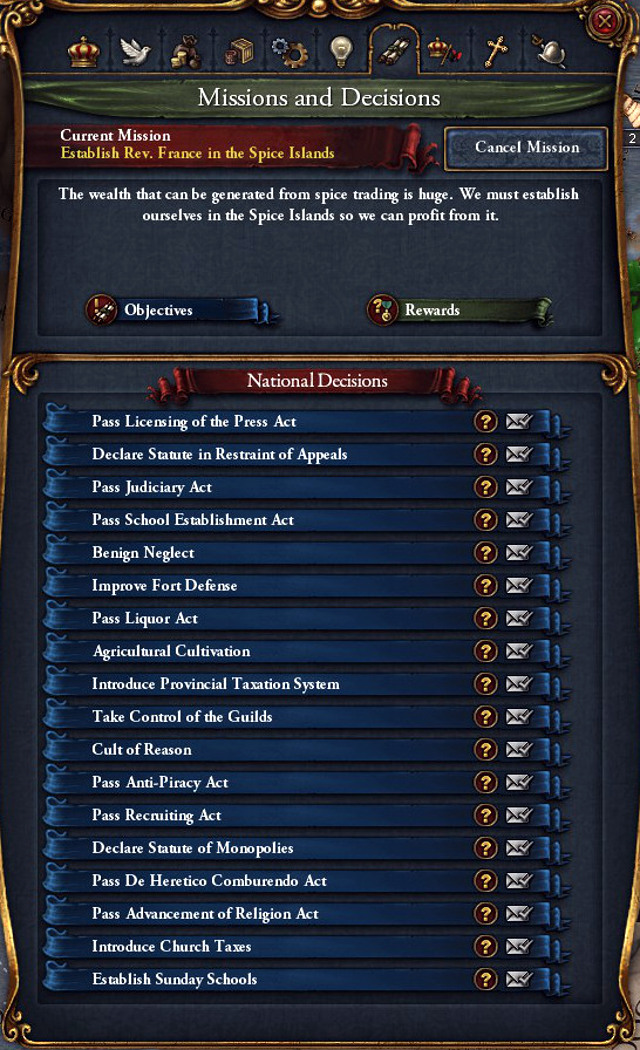Missions, decisions and historical events | Administration EU IV Guide
Last update: 11 May 2016

EU IV offers a number of missions that you can take up throughout the game, as well as decisions that you can implement. Both carry bigger or smaller bonuses, and they can additionally provide a framework for your future aims, if you cannot yet decide for a specific strategy. The available missions and decisions depend on the current political and economic situation, and also on the national religion (e.g. changing the religion from Catholicism to Protestantism) and the historical conditions (e.g. Poland and Lithuania have the decision of entering the Polish-Lithuanian Commonwealth). Before you start a mission, you should get acquainted with the requirements and determine if you are able to meet them. You should also check if the reward is worth it because, you could spend the time and the resources on something more important. In general, the strategy is you select the quickest task to perform, so you can perform as many missions as possible and collect as many bonuses as possible. You can also cancel the selected mission but, this involves a penalty if you will not be able to take up another mission for the next five years.
Another issue are the historical events. Veterans of the series probably remember the historical events in the first and in the second installment of the game. They were permanently bounded with specific dates and, when the time was right, the player had to face the historical ramifications of the event. The third installment of the game gave up on this element and focused on a more open-ended type of gameplay. In the current installment, the history repeats but, in a modified way, though. Now, historical events do not come with certain dates. Instead, they initiate automatically when the conditions are met And so, if in the XV England, there is no heir to the throne, this may initiate a series of events, which will result in the civil war known as the war of Roses. If the war exhaustion towards the end of the XVIII is high, and the proposals of the social and economic reforms have been repelled, this may lead to the French Revolution which, if handled properly, may (or may not) bring about the reign of Napoleon.
Historical events spice the gameplay up and lend the element of unpredictability and the variation of elements while completing the game for the next time with the same country. It is difficult to give any advices at this point. When the option of a string of events appears, you will be informed about this and learn about the general outline of possible consequences, depending on the decisions that you take. Of course, this type of events abound in the most important countries on the European continent. When it appears, you decide for yourself if you want history to roll out in the way known from the history books, or if you want to see "what if..."
